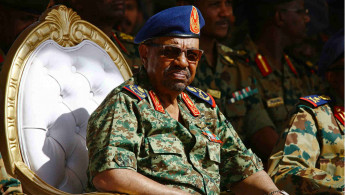Sudan's President Bashir to visit Russia this week
Sudan President Omar al-Bashir is expected to visit Russia on Thursday, the Kremlin has said, in the first such visit for the long-time Sudanese leader.
Bashir - who is wanted by the International Criminal Court for genocide and war crimes related to the Darfur conflict -will hold a meeting with senior Russian officials, although it is unclear whether this would include President Vladimir Putin.
"We can confirm that (a meeting will take place) on Thursday," news agencies quoted Kremlin aide Yuri Ushakov as saying, without providing further information.
Despite being wanted by the Hague-based court, Bashir continues to travel to various countries with impunity and denies all charges against him.
Sudan's deadly conflict in Darfur broke out in 2003 when ethnic minority groups took up arms against Bashir's Arab-dominated government, which launched a brutal counter-insurgency.
The UN says at least 300,000 people have been killed and more than 2.5 million displaced as a result of the conflict.
Top Sudanese officials including Bashir now claim that the conflict has ended, but the region continues to see regular fighting between myriad ethnic and tribal groups.
Earlier this month, the presidents of Sudan and South Sudan sat down to talk through years of disputes and disagreements.
Bashir and Salva Kiir discussed starting trade and cooperation, especially over oil exports and border disagreements during a state visit to Khartoum.
"One [area of discussion] is the resumption of oil in the former Unity State," said South Sudan's minister in the office of the president, Mayik Ayi Deng.
The vast majority of South Sudan's accessible oil deposits are located in its northern Unity State, but pipelines have remained inactive for at least two years due to the country's ongoing civil war.
The majority of these exports have historically flowed north through Sudan, but these pipelines mostly stopped due to a disagreement over Khartoum's export taxes. An agreement over the future of oil exports is to be discussed between the two presidents.
Relations between the two countries have been poor since the south seceded in 2011. The Sudanese government has repeatedly accused Juba of supporting rebel groups in its southern regions, while the South Sudanese army has made similar claims over Khartoum's support of its own rebel groups in the north.
Meanwhile, a series of man-made disasters have created one of the region's worst famines and allowed disease, including cholera, to spread rapidly.
It is hoped that President Kiir's visit to Khartoum - his third ever since 2011 - will help alleviate the causes of this conflict as the two historic enemies discuss economic co-operation.
A recent report from The Sentry found that military and political leaders had exploited sectarian hatred to further extend the civil war.
An analysis of leaked bank records found that a large number of senior ministers had become inexplicably wealthy through the sale of weapons.





 Follow the Middle East's top stories in English at The New Arab on Google News
Follow the Middle East's top stories in English at The New Arab on Google News
![Israeli forces ordered bombed Gaza's Jabalia, ordering residents to leave [Getty]](/sites/default/files/styles/image_330x185/public/2176418030.jpeg?h=a5f2f23a&itok=_YGZaP1z)

